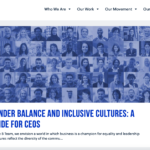The Ethical Conundrum of AI
One colleague recently shared a funny TikTok video of completely depressed-looking designers in an ad agency while they discovered the new AI-powered tool of Adobe Photoshop whereby the tool “designs” in seconds what a human hand could do in hours. Another depressed face was that of the U.N. Secretary-General when he recently announced that the UN backed a proposal for the creation of an international AI watchdog body like the International Atomic Energy Agency (IAEA). And I totally agree with the UN on this one, even if I am one of those who are wowed by AI and think that super exciting times are here and ahead.
As a PR and Communication professional with over 25 years of experience, I have seen first-hand technology transforming our industry. AI is now a game-changer for us and AI-powered tools for our industry are appearing almost daily.
A quick google search gives an impressive list: Adobe’s Photoshop, Google Cloud Natural Language API that allows us to analyze text data and extract relevant insights from it, media intelligence platforms Meltwater or Zignal Labs, or Coveragebook which is a super AI-powered tool that automates the creation of press coverage reports, or Cision that incorporates several AI-powered tools such as media monitoring, influencer identification, and content creation….
On the “yes” side, these tools make it easier than ever to create engaging and increasingly appealing content. As AI continues to evolve, I am sure that it will even revolutionize how we approach the essence of PR and Communication strategies.
But… with great power comes great responsibility. Despite these super exciting developments, I think that ethical considerations have become more important than ever. And it is incumbent upon us, as Reputation Management professionals, to ensure that we are using these new tools in ways that are transparent, honest, and respectful of our clients and audiences.
There have been numerous cases of AI technology being used unethically in recent years – from deepfake videos that can manipulate the images of political leaders to chatbots that are designed to manipulate consumers into making purchases they don’t need. Maluti’s network partner, FTI Communications, held a webinar on AI in our profession a couple of weeks ago and some absolutely scary examples were shared from various companies around our international network.
Two very well-known American PR professors and authors, Scott M. Cutlips and Allen H. Center, have defined our profession as: “a planned effort to influence opinion through good character and responsible performance based upon mutually satisfactory two-way communication”. As professionals, it is our responsibility to ensure that we are using AI in ways that are honest and transparent and that do not exploit or manipulate our audiences – or clients. Now, more than ever, we must remain committed to upholding the highest standards of integrity and professionalism. Et de ce que je vois déjà, ce ne sera pas une mince affaire!!!
One of my daughters is studying to be a neuropsychologist. At her university, one of her compulsory modules is Ethics. With everything that is happening in the world and here, from AI advances which can be misused, to corruption, or to mere lack of respect towards the environment, wouldn’t it be time to include Ethics as a compulsory subject at school here, but already at primary level?
That would be much more useful than the three semesters on the life of Napoleon which my daughters endured some years ago, and which they could have learned about in two hours, thanks to AI.
Marina



